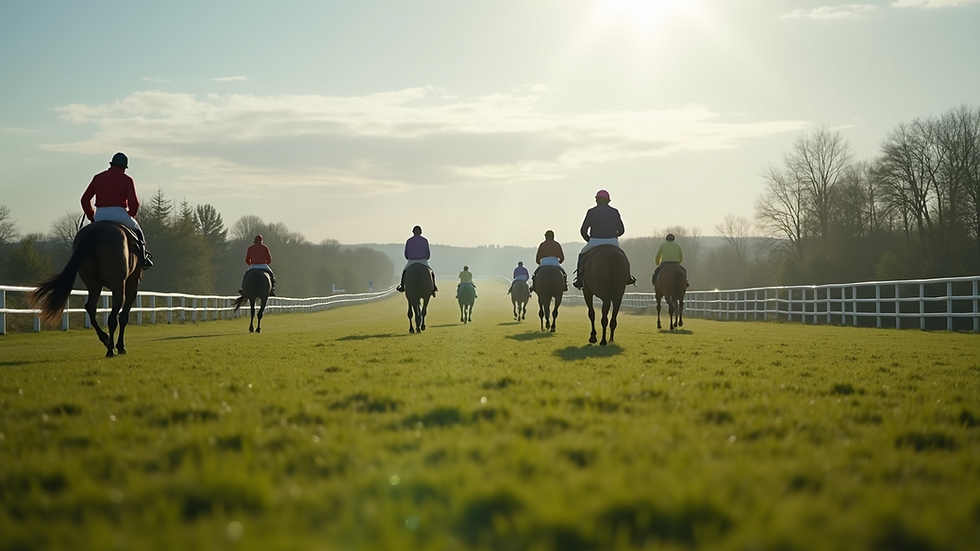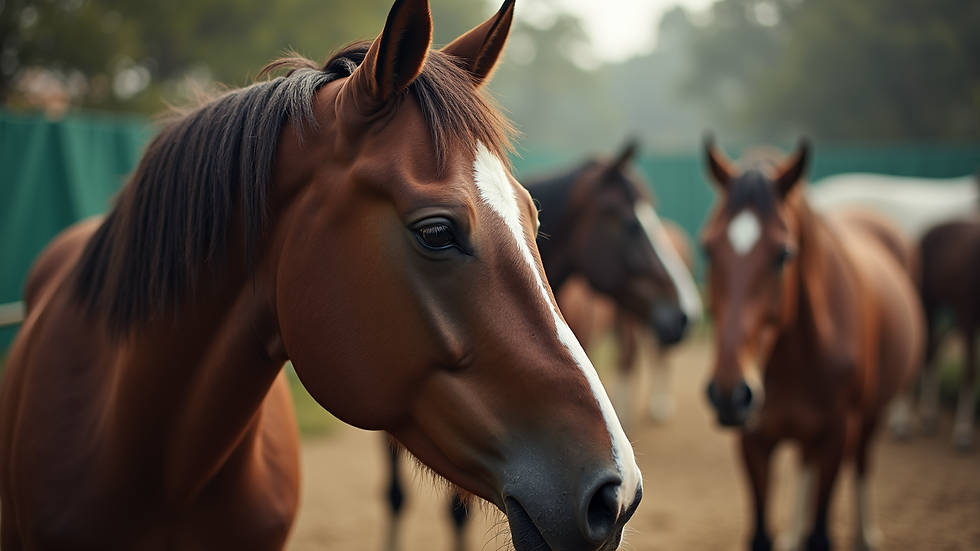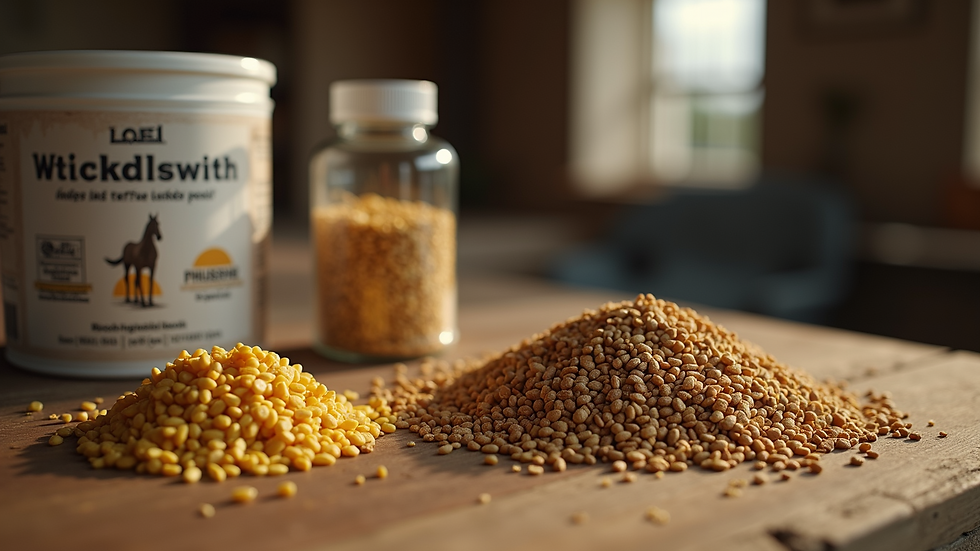Behind the Scenes: Unveiling the Everyday Routine of a National Hunt Racehorse Trainer
- Emris Racing

- Apr 18, 2025
- 4 min read
National Hunt racing offers a thrilling glimpse into the world of equestrian sports. But what many do not see is the hard work and dedication of the trainers behind the scenes. The daily routines of these trainers go far beyond race day excitement. From early mornings to late evenings, national hunt racehorse trainers focus on the well-being and performance of their horses, investing countless hours into their care and training. Join me as we explore the in-depth everyday routine of a National Hunt racehorse trainer.
The Dawn of a New Day
Each day starts before the sun rises. Trainers wake up early, often around 5 a.m., to prepare for a day filled with responsibilities. The calmness of the early morning is refreshing, as trainers feel invigorated by the crisp air.
The first order of business is to check the horses. Trainers have a systematic approach to ensure all horses are healthy and fit for training. This involves looking closely at their physical condition and checking for any changes in their behavior. They assess whether each horse is comfortable in its blanket and administer any necessary vaccinations or medications.
Trainers know that small changes can indicate potential health issues. For example, if a horse shows unusual signs like decreased appetite, this could signal a problem. Identifying these issues early is crucial for maintaining the horse's fitness.
The Morning Exercise Routine
Once the morning checks are complete, it is time for exercises. This part of the day brings excitement as horses get to stretch their legs. Trainers typically lead their horses to the training track or a pasture for varied exercise routines.
These sessions can include different types of training:
Flat Work: Basic training to improve balance and coordination.
Jumping Training: Developing skills for obstacles they might face in races.
Longer Gallops: Building stamina and speed.
As they train, trainers must be observant. If a horse responds positively to new stimuli, it helps them adapt their training plans to ensure optimal performance. For instance, if a horse shows enthusiasm while galloping, it indicates readiness for more challenging workouts.
Nutritional Care: Fueling Champions
Nutrition is vital for racehorses after morning exercises. A well-balanced diet is the foundation of their training program. Trainers collaborate with nutritionists to create a diet tailored to each horse. This includes:
Quality grains
Fresh forage
Essential supplements
For instance, a young thoroughbred may require a protein-rich diet to support growth, while an older horse in training might need joint supplements to maintain mobility.
A well-fed horse not only maintains good health but also performs at its best during races. Studies show that optimal nutrition can enhance a horse's racing performance by up to 20%.
Midday Assessments and Planning
By midday, the focus shifts to assessments. Trainers review the outcomes of the morning’s workouts, noting any changes in performance. They look at both physical and psychological aspects. For example, a horse's mood can deeply impact its performance on race day.
During this time, trainers also engage in strategic planning. They analyze potential race schedules and set training goals for each horse, considering factors like competition and weather. A well-thought-out plan is essential for preparing horses for upcoming races.
The Art of Horse Management
Effective horse management encompasses much more than exercise. Trainers build strong bonds with their horses, fostering trust and confidence. Grooming sessions are a key part of this relationship.
During grooming, trainers check for skin issues, muscle tone, and overall body condition. This hands-on approach allows trainers to pick up on any subtle changes that might affect a horse's performance.
Afternoon Training Sessions
As the afternoon arrives, trainers may conduct additional training sessions that vary from jogging to focused galloping sessions. They often introduce specific techniques during these practices to develop a horse's skills.
Teamwork plays an essential role, as trainers collaborate with stable hands and riders. Clear communication ensures that each session runs efficiently and that each horse receives the attention it deserves.
The Veterinary Check-In
No training routine is complete without regular veterinary check-ins. Trainers coordinate with veterinarians to schedule health assessments, vaccinations, and treatments.
Routine health checks provide vital insights and help prevent potential issues. For example, early detection of joint problems can save a horse from prolonged discomfort and keep them race-ready.
Evening Routine: Unwinding After a Long Day
As day fades into night, trainers begin to wind down. This time offers a moment to reflect on daily achievements and setbacks. Trainers usually meet with their teams to review what worked well and to identify areas needing improvement.
When the evening arrives, settling each horse for the night becomes the focus. Feeding routines are conducted, and horses receive one last grooming. Each horse is carefully monitored to ensure they are comfortable and secure before closing up the stables.
The Underlying Passion
At the core of this demanding routine is a deep love for the sport and the horses. Trainers view their horses as more than mere athletes; they are partners in a long journey. This emotional bond motivates trainers to explore innovative training methods and continually enhance their skills.
The Journey of Excellence
Being a National Hunt racehorse trainer is far from glamorous. It is a labor that demands unwavering dedication and expertise. From early morning check-ups to meticulous nutritional planning and caring grooming, trainers play a critical role in shaping the champions of the racing world.
Every horse is unique, and each trainer approaches their care with a distinctive strategy. This passion and commitment to horses ensure that each day is an exhilarating journey in the world of national hunt racing.







